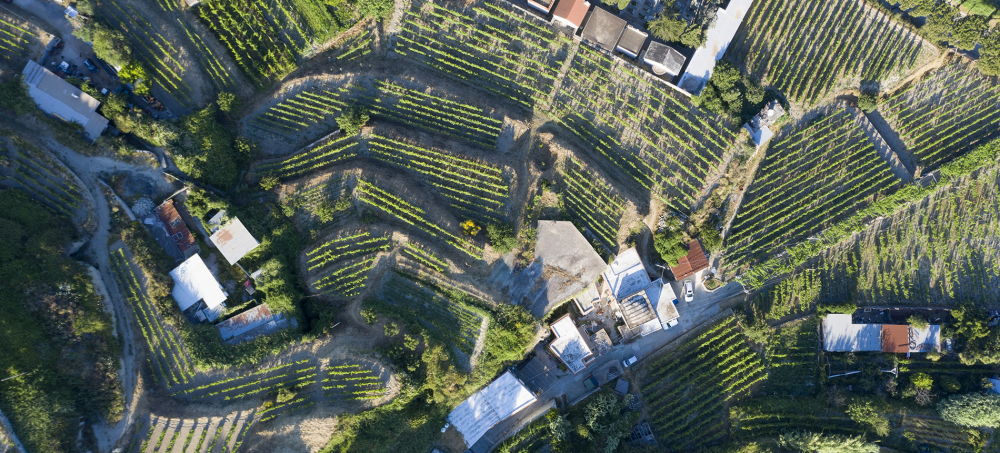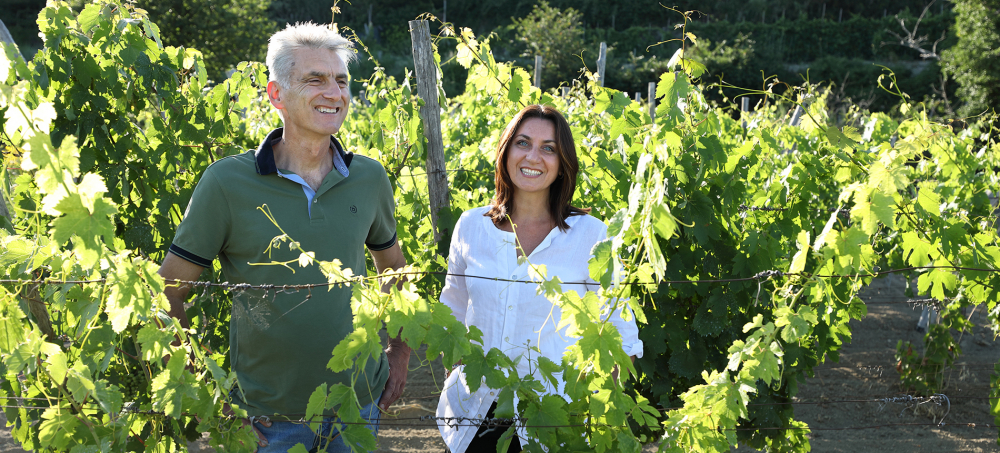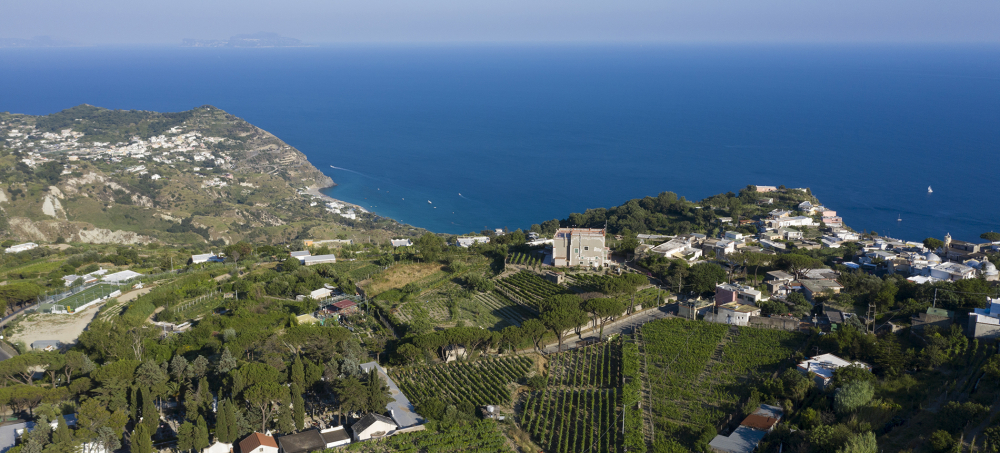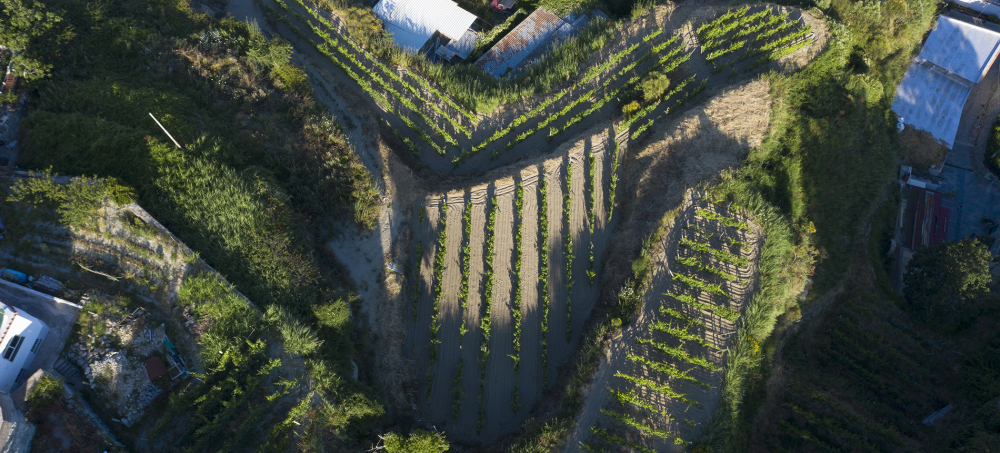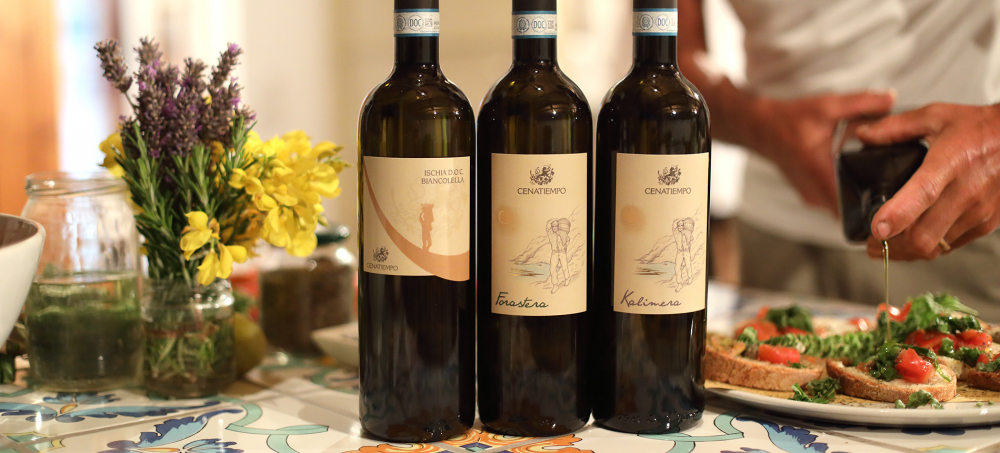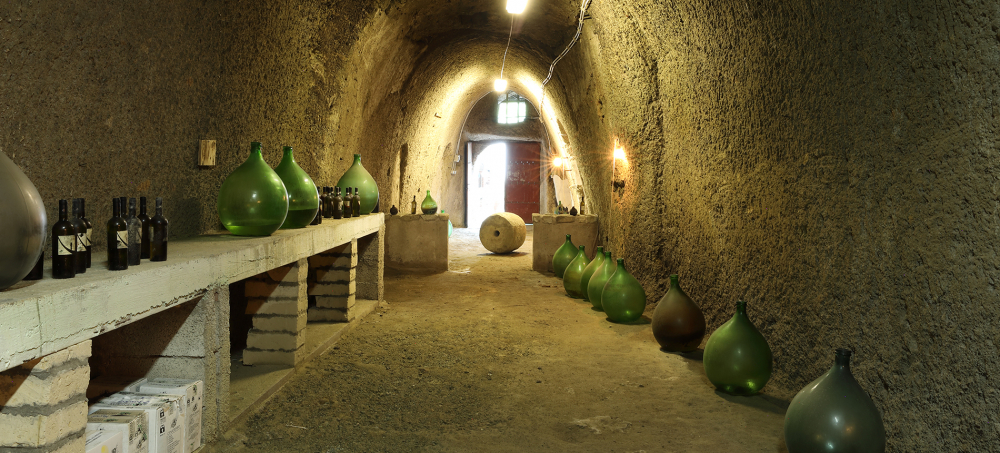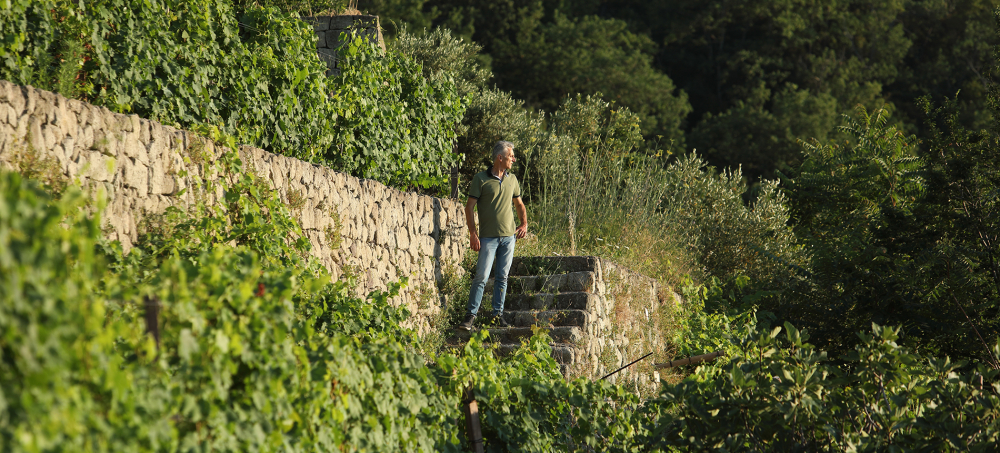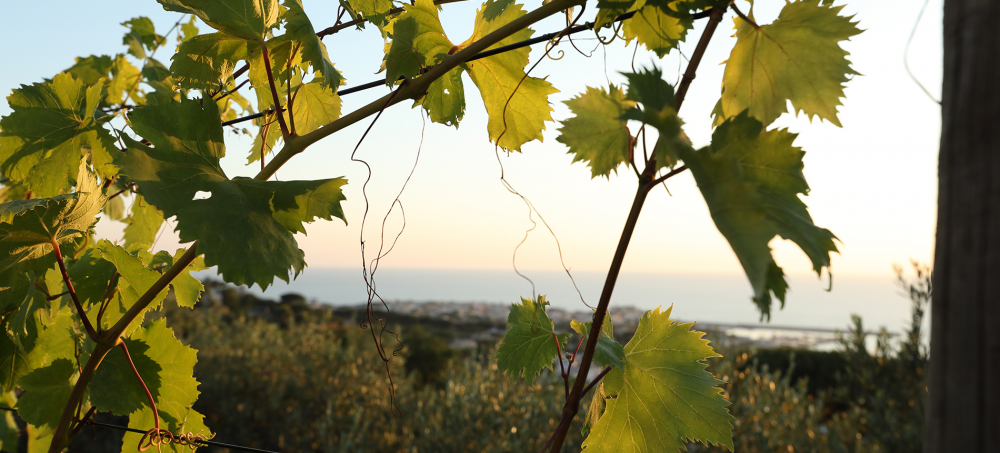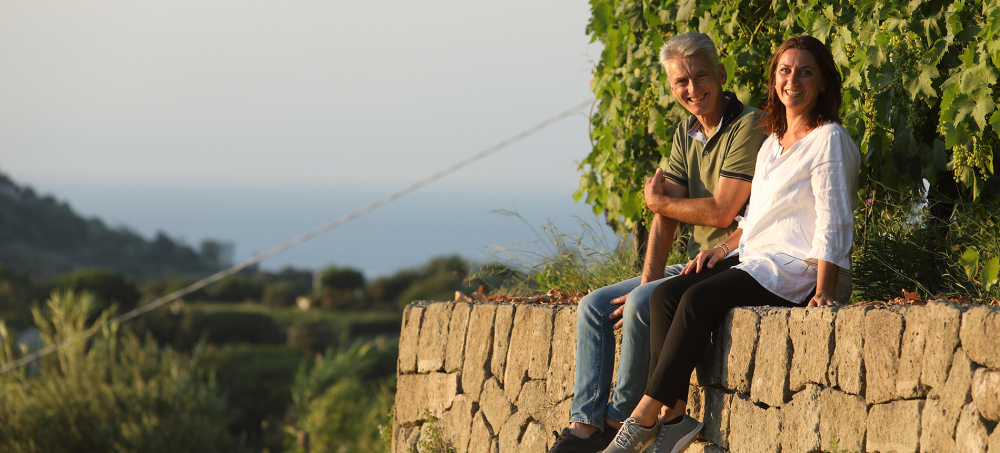When you think of Island of Ischia, you might think of beaches and sunshine but as Pasquale Cenatiempo will tell you – Ischia wine is mountain wine. The vineyards all over the island are influenced by the close proximity to the Tyrrhenian Sea (off the West Coast of Italy, not far from Naples) but also from their elevation – their grapes are grown up to elevations of 600 meters. The winery is run by Pasquale Cenatiempo and his partner, Federica Predoni. They make compelling, focused, mineral-driven wines from the island’s indigenous varieties on the slopes of Ischia.
Ischia is situated just off the coast of Naples. Here the soil is volcanic. In fact, the island was formed by a volcano which last erupted in 1302. The winery was founded in 1945 by Pasquale’s father Francesco, who, like Pasquale today, made wine from his own grapes as well as from some of his friends and neighbors throughout the island. Not much has changed over the last 70 years. The wines are still fermented in steel or cement vats with indigenous yeasts and aged in the same vessels. In the vineyards, Cenatiempo farms organically. In fact, for their larger parcels they have begun adapting some biodynamic principles and treatments as well.
Their production is mainly in white wine including a couple of Ischia Bianco blends as well as monovarietal wines of Biancolella and the high-acid, low-octane Forastera. They also make small amounts of red, mainly from Piedirosso, Aglianico and Sciacinosso. The two wines that really illustrate the potential of great winemaking on this small island are the Kalimera Biancolella sourced from an old parcel of Biancolella at high elevation and also the small production Forastera bottling which is more reminiscent of a mountain wine from the north, like a Blanc du Morgex from the Valle d’Aoste, beautifully lean, racy and stony.
These are small production wines from an artisanal producer making traditional, natural wine from a truly unique terroir of high elevation vineyards and compelling local varieties. They are well worth seeking out!
